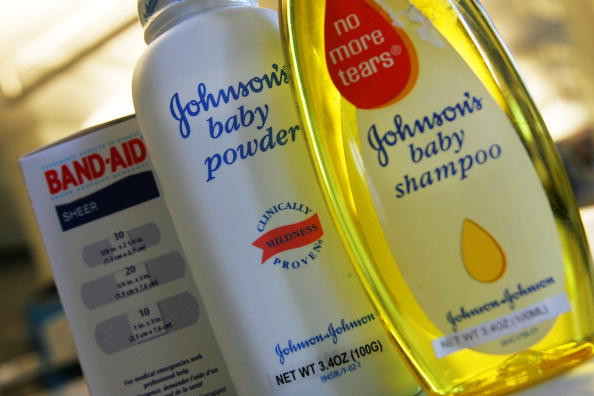Johnson & Johnson to pay £51m to family of woman who claims baby powder led to ovarian cancer

A jury in St. Louis, Missouri has ordered the pharmaceutical giant Johnson & Johnson to pay $72m (£51m) to the family of a woman who claimed her ovarian cancer was triggered by the talcum powder. According to the jury, the manufacturer failed to warn the users on the possible risks of using talcum powder.
Jackie Fox who died of ovarian cancer in 2015 had been using the company's baby powder and shower to shower for nearly 35 years before being diagnosed with ovarian cancer. Her family was paid $10m (£7m) in compensation and $62m (£44m) as a punitive award.
"It was really clear they were hiding something ... All they had to do was put a warning label on," said Krista Smith, the jury foreman, after the hearing. So far, Johnson & Johnson faces nearly 1,200 lawsuits from customers who feel they were not warned against the possible risks of using the talcum.
Customer base in the US has fallen drastically since the lawsuits starting surfacing against the pharmaceutical. Despite warnings raised by the American Cancer Society in 1999, talcum powder is still commonly used in the UK.
"If something truly causes cancer, you would expect people who are exposed to more of that thing to have a higher risk," said Cancer Research UK. "For example, the more you smoke, the higher your risk of lung cancer. But the majority of the studies have not found a similar relationship for talc use and ovarian cancer." Should a similar case surface in the UK, a judge rather than a jury will have to be convinced. It will also have to be argued that the powder is what solely contributed to a person contracting cancer.
Meanwhile, a statement by Johnson & Johnson spokesman, Carol Goodrich read, reported The Telegraph: "We have no higher responsibility than the health and safety of consumers and we are disappointed with the outcome of the trial. We sympathise with the plaintiff's family but firmly believe the safety of cosmetic talc is supported by decades of scientific evidence."
© Copyright IBTimes 2025. All rights reserved.






















